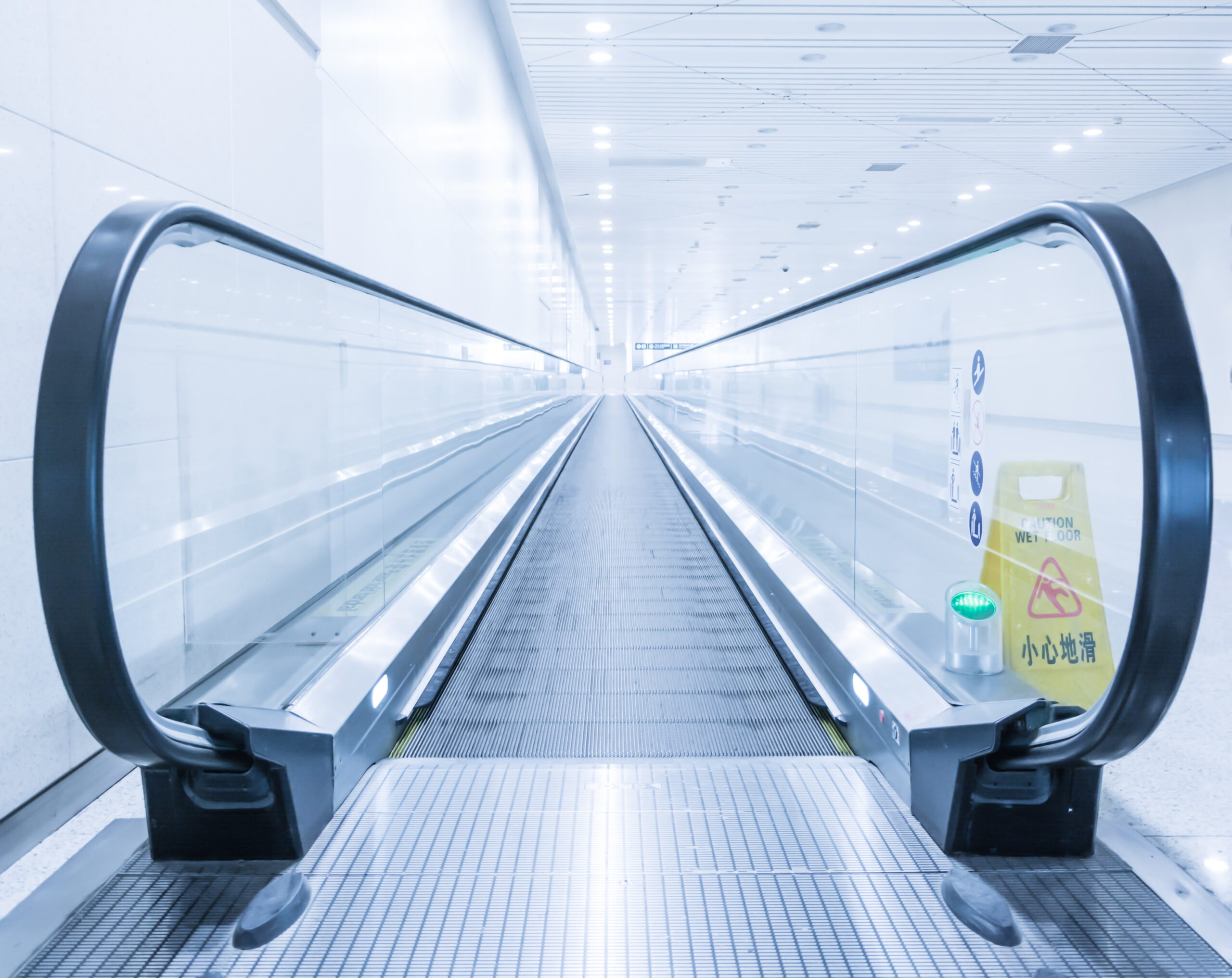In today’s fast-paced world, transportation efficiency within large public spaces is crucial.
One of the innovations making a significant difference is the movable autowalk. These
systems, often referred to as accelerating moving walkways, provide an efficient way to
transport pedestrians over long distances in areas such as airports, malls, and transit
stations. By enhancing the flow of people, reducing fatigue, and improving accessibility,
these walkways are becoming an essential feature in modern urban environments. In this
article, we will explore the key advantages of accelerating moving walkways and their
various applications.
Advantages of Accelerating Moving Walkways
- Improved Passenger Flow
One of the primary benefits of accelerating moving walkways is their ability to improve the
flow of pedestrian traffic. In high-traffic areas like airports and metro stations, congestion can
slow down the movement of people, leading to delays and frustration. Accelerating walkways
helps alleviate this issue by allowing people to move faster with less physical effort. The
walkways ensure a steady flow of passengers, helping them navigate through large spaces
more efficiently. - Reduced Fatigue
Large spaces such as airports, shopping malls, and exhibition centers often require people
to walk long distances. This can be particularly tiring for travelers, shoppers, or visitors who
have to cover vast areas on foot. Accelerating moving walkways helps reduce fatigue by
providing a platform for people to rest while still moving toward their destination. This feature
is especially beneficial for those carrying luggage, the elderly, or individuals with limited
mobility. - Increased Accessibility
Another significant advantage of accelerating moving walkways is their inclusivity. These
systems are designed to be accessible to everyone, including individuals with mobility
challenges. Walkways feature low-incline entry and exit points, making them easy to use for
people in wheelchairs, parents with strollers, and travelers with heavy luggage. By making
public spaces more accessible, these walkways contribute to creating inclusive
environments that cater to the needs of all individuals. - Time Efficiency
In places like airports and train stations, time is often of the essence. Passengers need to
move quickly between gates or platforms to catch their next flight or train. Accelerating
moving walkways can significantly cut down travel time within these spaces by increasing
the walking speed of passengers without requiring extra effort. This not only helps people
reach their destinations faster but also reduces the stress associated with navigating through
large, busy terminals. - Safety Features
Modern accelerating moving walkways come equipped with several safety features designed
to protect passengers. For instance, handrails provide extra support, and many systems
include automatic sensors that detect obstacles or sudden changes in the walkway’s
condition. Additionally, emergency stop buttons are placed along the walkway, allowing
passengers to halt the system in case of an emergency. These features make the walkways
not only efficient but also safe for daily use.
Applications of Accelerating Moving Walkways
- Airports
Airports are one of the most common locations where accelerating moving walkways are
used. Airports are often sprawling complexes where passengers must move between
terminals, gates, and baggage claim areas. The walkways help passengers cover these long
distances quickly, reducing the time they spend walking and ensuring they can reach their
gates on time. For international travelers with limited time between connecting flights, these
walkways are a lifesaver. - Metro Stations and Transit Hubs
In large metro stations and transit hubs, passengers often need to navigate between
platforms or exit points over long distances. Accelerating moving walkways provides an
efficient solution by speeding up the movement of people across these spaces. By using
these walkways, commuters can reduce the time it takes to transfer between trains or buses,
improving the overall efficiency of the transit system. - Shopping Malls
Large shopping malls frequently incorporate accelerating moving walkways to enhance the
customer experience. These walkways help shoppers navigate between different sections of
the mall, making it easier for them to explore more stores without becoming fatigued. By
reducing the effort required to walk long distances, malls can encourage visitors to stay
longer, which can increase sales for retailers. - Exhibition Centers and Large Venues
Exhibition centers, conference halls, and large venues often cover vast areas, making it
challenging for visitors to move from one exhibit to another efficiently. Installing accelerating
moving walkways helps reduce the physical strain on visitors, enabling them to navigate the
venue more easily. This not only improves the visitor experience but also encourages people
to explore more of the exhibits or activities offered at the venue.
The Role of Autowalk Manufacturers in Innovation
The development and installation of accelerating moving walkways rely heavily on the
expertise of autowalk manufacturers. These manufacturers are responsible for designing
systems that meet the specific needs of various public spaces. From ensuring that the
walkways are energy-efficient to incorporating advanced safety features, manufacturers play
a crucial role in the innovation of these systems.
Moreover, many autowalk manufacturers are focusing on sustainability by designing
walkways that consume less energy and have a reduced environmental impact. These
advancements make the walkways not only beneficial for the users but also for the
environment, contributing to a more sustainable urban infrastructure.
Conclusion
Accelerating moving walkways has become a vital part of modern infrastructure, offering
numerous advantages such as improved passenger flow, reduced fatigue, increased
accessibility, and enhanced safety. From airports to shopping malls and exhibition centers,
these walkways provide a seamless, efficient, and user-friendly mode of transport within
large public spaces.
- A Comprehensive Guide to 8 Types of Warehouse Security Measures - December 26, 2024
- Exploring the Advantages and Applications of Accelerating Moving Walkways - December 26, 2024
- Benefits of Online Loans vs. Traditional Bank Loans: Which Option is Right for You? - May 21, 2024





Comment here